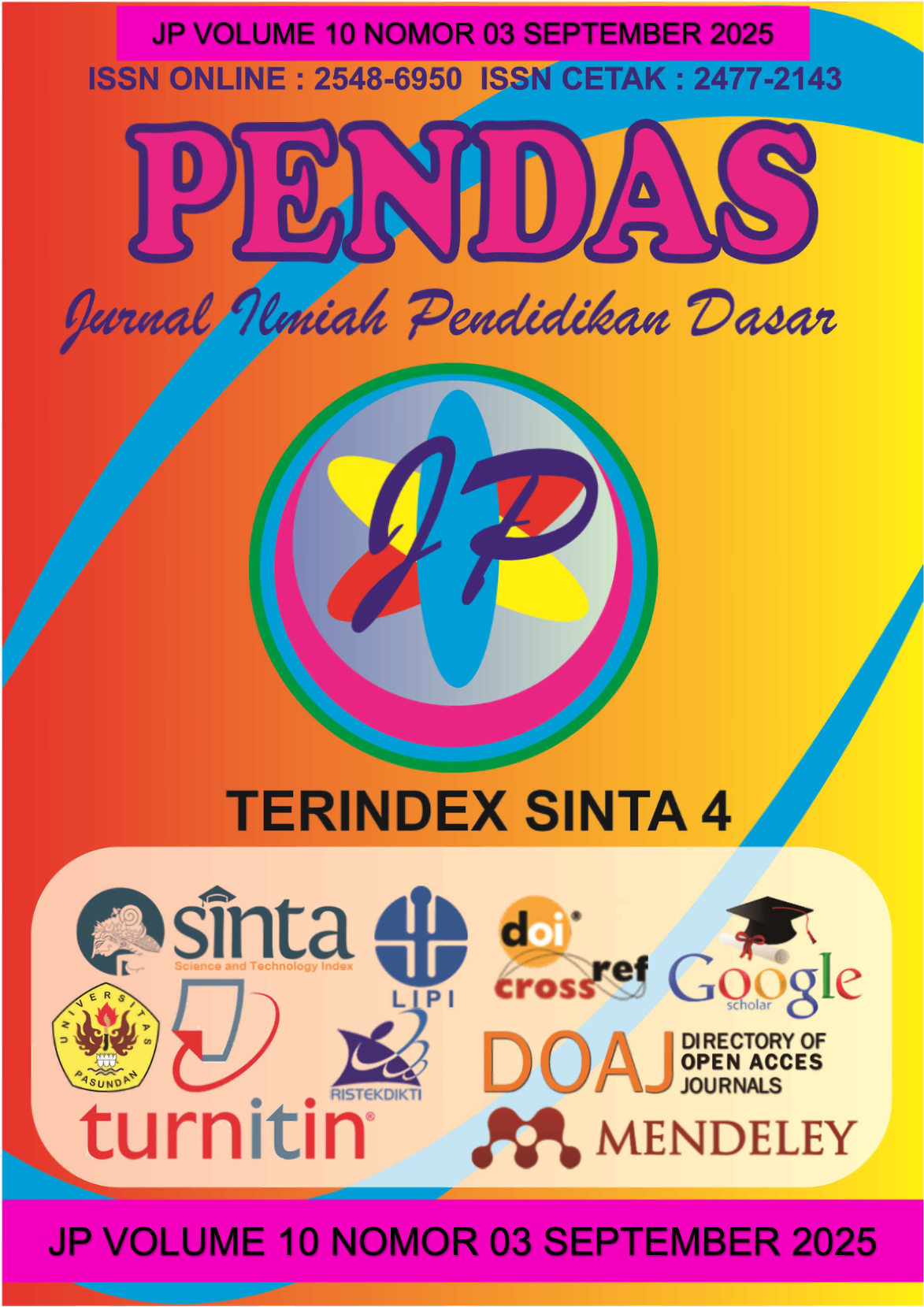PENGARUH PERUBAHAN PREFRENSI MAKANAN DAN DAMPAK TREN KULINER TERHADAP MINAT BELI MAKANAN TRADISIONAL GENERASI Z DI JAKARTA
DOI:
https://doi.org/10.23969/jp.v10i03.30741Keywords:
Food Preferences, Culinary Trends, Purchase Interest, Traditional Food, Generation ZAbstract
The rapid development of the culinary industry in the era of globalization has impacted changes in consumer patterns, particularly among Generation Z, who are heavily influenced by modern culinary trends and social media. This phenomenon poses challenges for the sustainability of traditional foods, which are increasingly less favored due to shifting consumption preferences. This study aims to analyze the influence of changes in food preferences and the impact of culinary trends on Generation Z's purchasing interest in traditional foods in Jakarta. This study employs a quantitative method with a population of Generation Z aged 18–28 years who have purchased traditional Jakarta-style food. The sample was selected using purposive sampling with the Slovin formula, resulting in 100 respondents. Data collection was conducted through the distribution of a Likert-scale questionnaire, while data analysis utilized multiple linear regression analysis assisted by SPSS software. The validity and reliability tests showed that the research instruments were valid and reliable. The T-test indicated that changes in food preferences and culinary trends significantly influenced purchasing interest in traditional food, with calculated t-values of 5.742 and 4.940, respectively, which were greater than the critical t-value of 1.984, and a significance level of 0.000 < 0.05. The F test also showed the simultaneous influence of both independent variables with an F value of 46.501, which is greater than the F table value of 3.09. These findings prove that Generation Z tends to be interested in culinary innovations that combine elements of traditional food authenticity with modern culinary trends that are visually appealing and viral on social media. This study is expected to serve as a reference for strategies to preserve traditional food through adaptive innovation.Downloads
References
Adzra Bela Yumna, Ari Fadiati, & Cucu Cahya. (2023). Minat Kuliner Nusantara Pada Generasi Z (Studi Tentang Hubungan Keterpaan Informasi pada Konten Food Vlogger Youtube dengan Minat Kuliner Nusantara pada Generasi Z). Jurnal Manajemen, Bisnis Dan Kewirausahaan, 3(2), 01–11. https://doi.org/10.55606/jumbiku.v3i2.2198
Aisyah Syamsuddin. (2021). Terkaman Konsumsi Gadget sebagai Produk Globalisasi Melawan Degradasi Kebudayaan Nasional. Ad-Dariyah: Jurnal Dialektika, Sosial Dan Budaya, 2(2), 16–33. https://doi.org/10.55623/ad.v2i2.80
Amelia, D., Setiaji, B., Jarkawi, J., Primadewi, K., Habibah, U., Peny, T. L., Rajagukguk, K. P., Nugraha, D., Safitri, W., Wahab, A., Larisu, Z., & Dharta, F. Y. (2023). Metode Penelitian Kuantitatif. In Metpen. https://penerbitzaini.com/
Asparin, A., & Sudiyarto, S. (2021). Perspektif Preferensi Konsumen Remaja terhadap Jajanan Tradisional Khas Gresik. JIA (Jurnal Ilmiah Agribisnis) : Jurnal Agribisnis Dan Ilmu Sosial Ekonomi Pertanian, 6(4), 114. https://doi.org/10.37149/jia.v6i4.19742
Badan Pusat Statistik Provinsi DKI Jakarta. (2025). Jumlah Penduduk Menurut Kelompok Umur dan Jenis Kelamin (ribu jiwa) di Provinsi DKI Jakarta, 2025. https://jakarta.bps.go.id/id/statistics-table/3/WVc0MGEyMXBkVFUxY25KeE9HdDZkbTQzWkVkb1p6MDkjMw==/population-by-age-groups-and-sex--thousand--in-dki-jakarta-province--2023.html?year=2025
Dr. Syamsul Rahman, S.T.P., M. S. (2020). PENGEMBANGAN INDUSTRI KULINER BERBASIS MAKANAN TRADISIONAL KHAS SULAWESI (Issue 1).
Ghozali. (2018). Ghozali-2018_Compress.Pdf (p. 490).
Husen, A. (2023). Strategi Pemasaran Melalui Digital Marketing Campaign Di Toko Mebel Sakinah Karawang. Jurnal Economina, 2(6), 1356–1362. https://doi.org/10.55681/economina.v2i6.608
Kadir, S. (2022). Kuliner Bergizi Berbasis Budaya. https://repository.ung.ac.id/get/karyailmiah/9535/Sunarto-Kadir-Kuliner-Bergizi-Berbasis-Budaya.pdf
Kambali, I., & Syarifah, A. (2020). PENGARUH HARGA TERHADAP KEPUTUSAN PEMBELIAN ( Studi Kasus di Billionaire Store Bandung ). Ejurnal.Poltekpos.Ac.Id, 10, 1–8. https://ejurnal.poltekpos.ac.id/ind
Nugroho, C. A., & Dewantara, Y. F. (2023). Analisis Pengaruh Store Atmosphere dan Lokasi terhadap Minat Beli di Javarover Coffee Company. JIIP - Jurnal Ilmiah Ilmu Pendidikan, 6(11), 9298–9303. https://doi.org/10.54371/jiip.v6i11.3172
Nur, I., & Rakhman, M. T. (2019). Analisis Pdrb Sektor Ekonomi Unggulan Provinsi Dki Jakarta. Indonesian Treasury Review Jurnal Perbendaharaan Keuangan Negara Dan Kebijakan Publik, 4(4), 351–370. https://doi.org/10.33105/itrev.v4i4.132
Ph.D. Ummul Aiman, S. P. D. K. A. S. H. M. A. Ciq. M. J. M. P., Suryadin Hasda, M. P. Z. F., M.Kes. Masita, M. P. I. N. T. S. K., & M.Pd. Meilida Eka Sari, M. P. M. K. N. A. (2022). Metodologi Penelitian Kuantitatif. In Yayasan Penerbit Muhammad Zaini.
Purnamasari, M., & Noviadi, A. (2025). PERILAKU KONSUMEN GEN Z DALAM MEMILIH. 1(1), 78–87. https://doi.org/10.56743/jstp.v10i1.496
Rekasih, M., Muhandri, T., Safithri, M., & Wijaya, C. H. (2021). Antihyperglycemic activity of java tea-based functional drink-loaded chitosan nanoparticle in streptozotocin-induced diabetic rats. HAYATI Journal of Biosciences, 28(3), 212–222. https://doi.org/10.4308/hjb.28.3.212
Salsabila, A. ’Aina, & Hana, K. F. (2023). Preferensi Konsumen Muslim: Eksistensi Makanan Halal Modern Terhadap Minat Beli Jajanan Tradisional pada Generasi Muda. Fokus Bisnis Media Pengkajian Manajemen Dan Akuntansi, 22(2), 238–246. https://doi.org/10.32639/fokbis.v22i2.748
Savia, E. H., Tandara, K. L., Sari, D. M., & Ds, M. (2025). Dinamika Penyebaran Tren Kuliner Viral di TikTok dalam Perspektif Teori Jarum Hipodermik. 1(April), 2–7.
Stansyah, M. R., Choirunnisa, R., Tegar, M., & Putri, S. S. A. (2023). Analisis Pengaruh Minat Beli Konsumen Terhadap Pembelian Makanan Dan Minuman Melalui Aplikasi Go Food. Jurnal Pendidikan Tata Niaga (JPTN), 11(1), 43–49. https://doi.org/10.26740/jptn.v11n1.p43-49
Ulita, N. (2025). Menemukan Potensi Untuk Strategi Desain Promosi : Empathy Map Gen Z Terhadap Makanan Sehat Sebagai. 07. https://doi.org/https://doi.org/10.52265/jdi.v7i1.540
Wahdah, Lucky Hartanti, & Maherawati. (2022). Preferensi Mahasiswa di Kota Pontianak terhadap Makanan Tradisional Kalimantan Barat dan Perbandingan Komposisi Nutrisinya dengan Pangan Siap Saji. Jurnal Mutu Pangan : Indonesian Journal of Food Quality, 9(2), 58–66. https://doi.org/10.29244/jmpi.2022.9.2.58
Downloads
Published
Issue
Section
License
Copyright (c) 2025 Pendas : Jurnal Ilmiah Pendidikan Dasar

This work is licensed under a Creative Commons Attribution 4.0 International License.



















